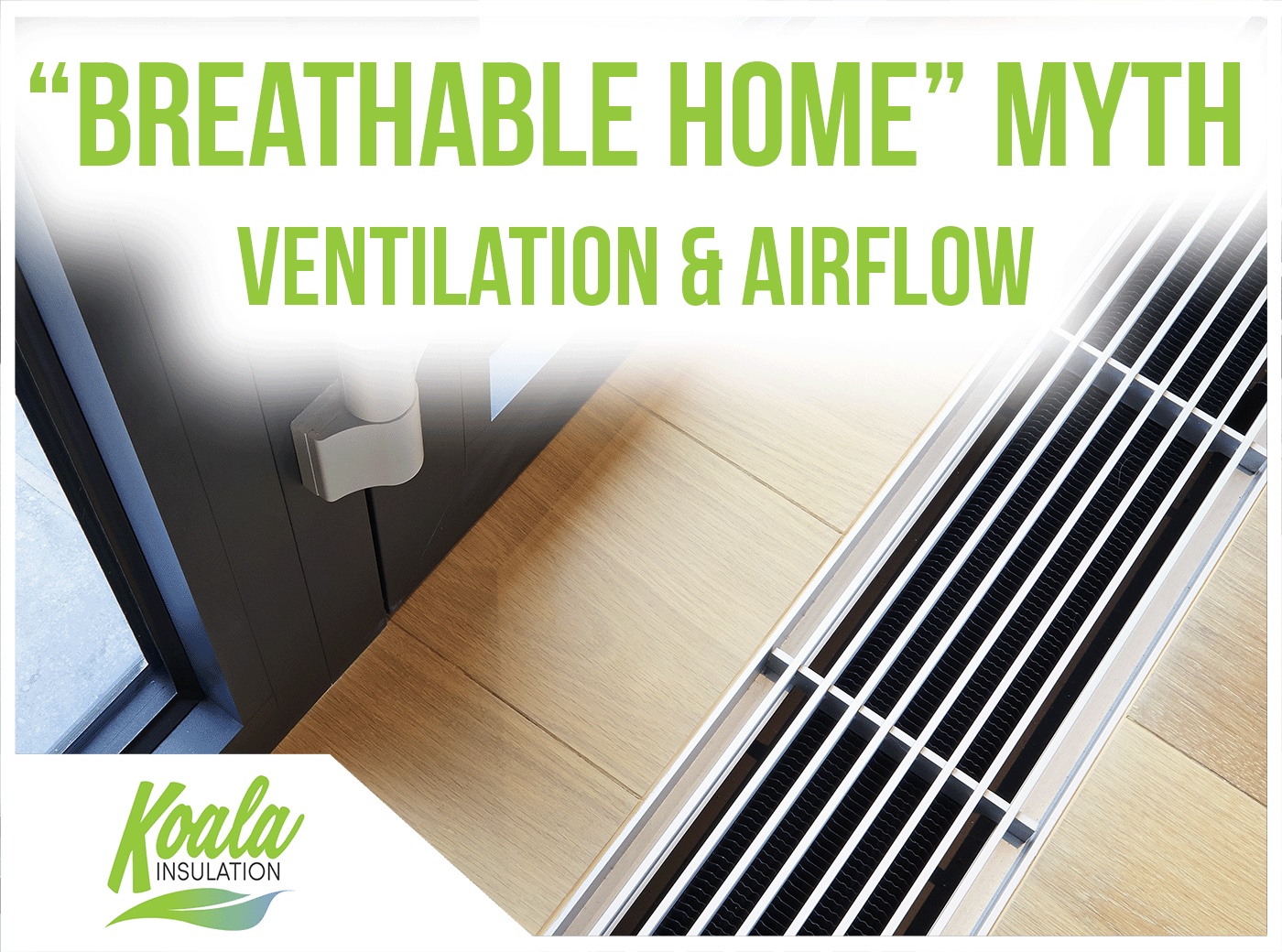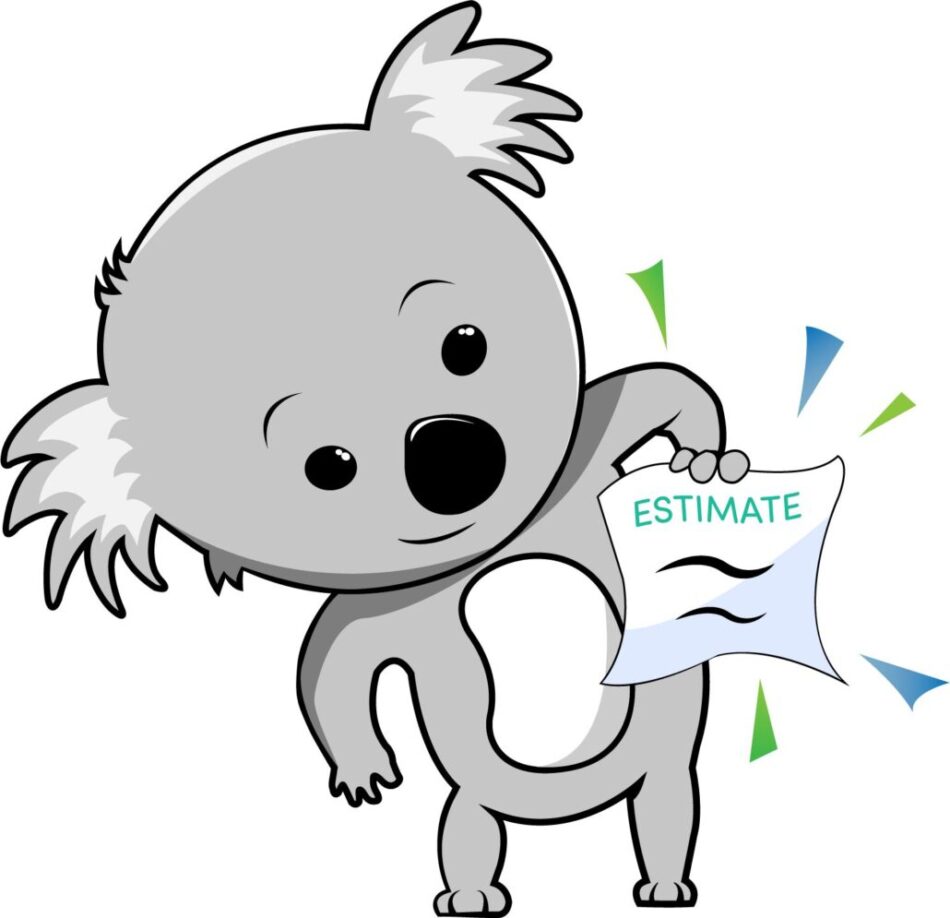The “Breathable Home” Myth: Ventilation and Airflow

Have you ever heard the homeowner tip to let your home “breathe” and avoid sealing the house too tight? Whether it’s through natural ventilation or reduced air sealing, some property owners are taking the idea of a “breathable home” to heart. Unfortunately, those individuals who don’t do their research may be increasing the risk of the same problems they’re trying to avoid.
Airflow And Air Leaks
It’s important to make one key distinction: people need to breathe, while buildings need to have proper airflow. The ventilation system in your home helps to control airflow, circulating inside air out with the proper amounts of outside air. In the summer, this replaces heat from your attic with cooler air from the outdoors; in the winter, this circulation helps to reduce ice build-up and condensation from the temperature difference from the inside and outside of the roof.
The insulation and air sealing in your home don’t prevent effective airflow – in fact, these materials can actually support the ventilation system by preventing air leaks. If you're foregoing updated insulation and air sealing because you're trying to maintain a "breathable home", you could create a "leaky" building instead. When your home is poorly sealed, gaps, cracks, and other openings throughout the building envelope allow for random airflow, which can add strain to the rest of your home's systems. Air leaks increase your home's energy waste and humidity while decreasing indoor air quality.
This is the biggest problem with the “breathable home” myth: it’s misleading and works against your current systems. Air sealing isn’t actually a direct part of your ventilation system – instead, it has a separate, supporting role. There are two ways to think of a “tightly sealing building”: one that has adequate air sealing to allow ventilation systems to effectively control airflow, and another that has adequate air sealing, but an inadequate ventilation system. If you’re having trouble with a home that’s sealed too tightly, it’s more likely a problem with your attic fans and HVAC system, not the air sealing quality!
Having A Poorly Sealed Home
Energy Waste
One of the most costly issues a poorly sealed home can cause for any homeowner is wasted energy. If you’re seeing an increase in your monthly energy costs, deteriorated or damaged insulation and air sealing are likely culprits. Uncontrolled airflow can increase the stress put on your HVAC system; the unit needs to work longer and more often to keep the building temperature regulated and climate controlled because of air leaks throughout the house.
The stress put on your HVAC and ventilation system to try to maintain quality temperature regulation when you don’t have any defense against heat transfer significantly increases your monthly costs. In fact, Energy Star estimates that about 90% of homes in the U.S. are poorly sealed, losing out on an average of 15% savings on their heating and cooling costs.
Moisture
Your home often collects excess moisture in the attic, basement, and crawl spaces when they lack proper ventilation. Unsealed floors and ceilings allow for condensation build-up and moisture collection from the weather. This can increase the level of humidity in your home, which in turn increases your risk of mold growth.
If your home has controlled airflow and a quality ventilation system with the help of devices like solar attic fans, there's less moisture trapped inside the house. Updated insulation and air sealing have a quality of life cycle when properly maintained: reduced condensation means less moisture build-up, which helps to reduce hidden damages that can deteriorate the materials in your home, making them more effective for a longer period of time so they can continue to reduce condensation!
Poor Indoor Air Quality
Finally, air leaks significantly reduce the indoor air quality of your home. While mold growth is enough to raise health concerns for any household, many people overlook the problems that are created by poor indoor air quality. Don’t let the changing of the seasons fool you; if you’re experiencing allergy-like symptoms such as coughing, sneezing, or increased asthma symptoms, air leaks could be contributing to this discomfort.
Air leaks allow outdoor air to freely enter and exit the home, bringing in dirt, dust, pollen, and other pollutants. While you may have an effective filtration system, these devices need the support of effective air sealing to run efficiently for their estimated lifespan. With too many air leaks throughout the home, you'll likely need to change air filters out more often just to try to maintain comfort. Having your home professionally air-sealed can significantly reduce the need for these filtration systems in general!
Fact-Check More Myths With Local Experts
There are a number of insulation and air sealing myths that get repeated without a proper background check. While many homeowners are trying to save themselves from extra costs and hassle, they could potentially make the situation worse if an industry expert isn’t consulted. When looking for cost-effective and energy-efficient ways to reduce moisture, air leaks, and energy waste, it’s important to find the right team to support your needs and guide your research.
Koala Insulation of West Houston has a team of insulation professionals that are trained and experienced in improving the comfort and safety of our local communities. Our free evaluations offer you and your household the opportunity to review the current condition of your home’s insulation and air sealing, while also targeting any pain points you may be experiencing. Taking into account your household’s schedule and budget, our team works around your needs to solve your problems while increasing savings. Contact your local insulation experts at Koala Insulation of West Houston today to schedule your free evaluation and learn more about common household myths that could be costing you!
Find Your Location


Get a quote


